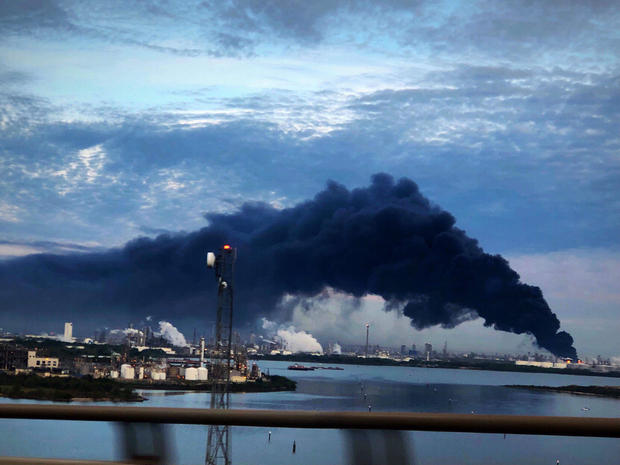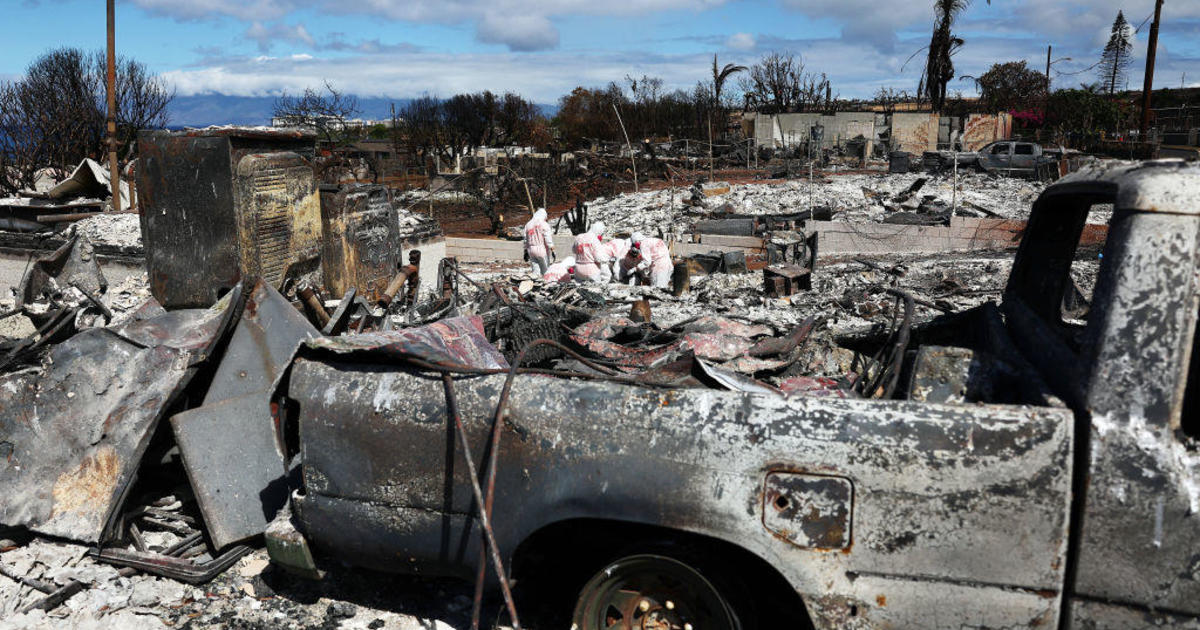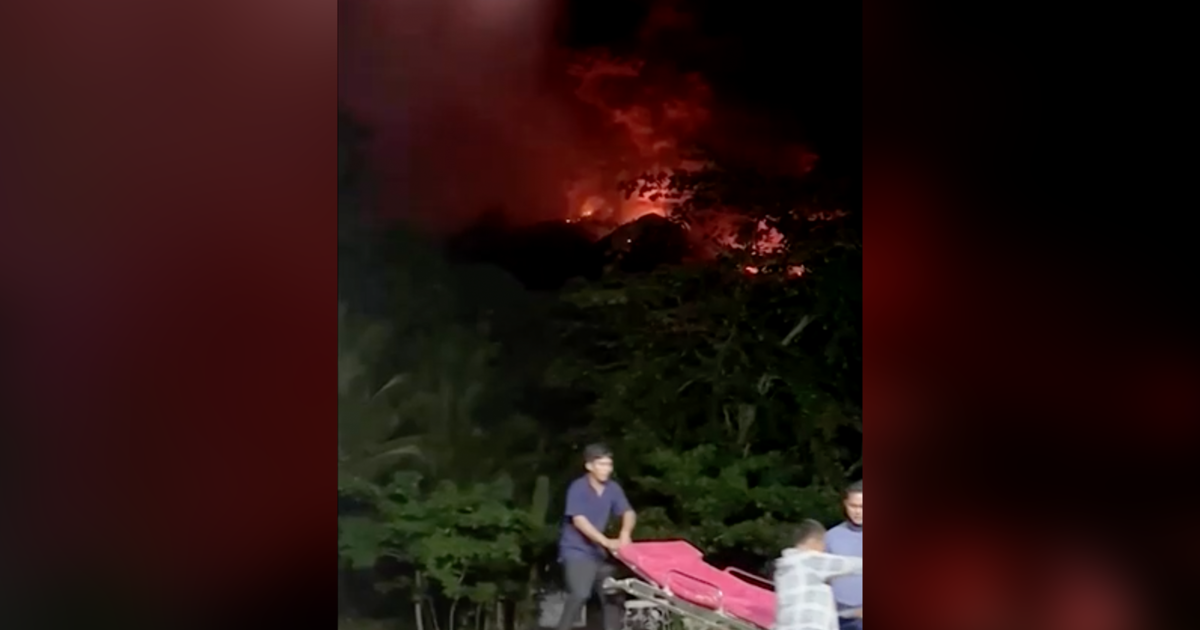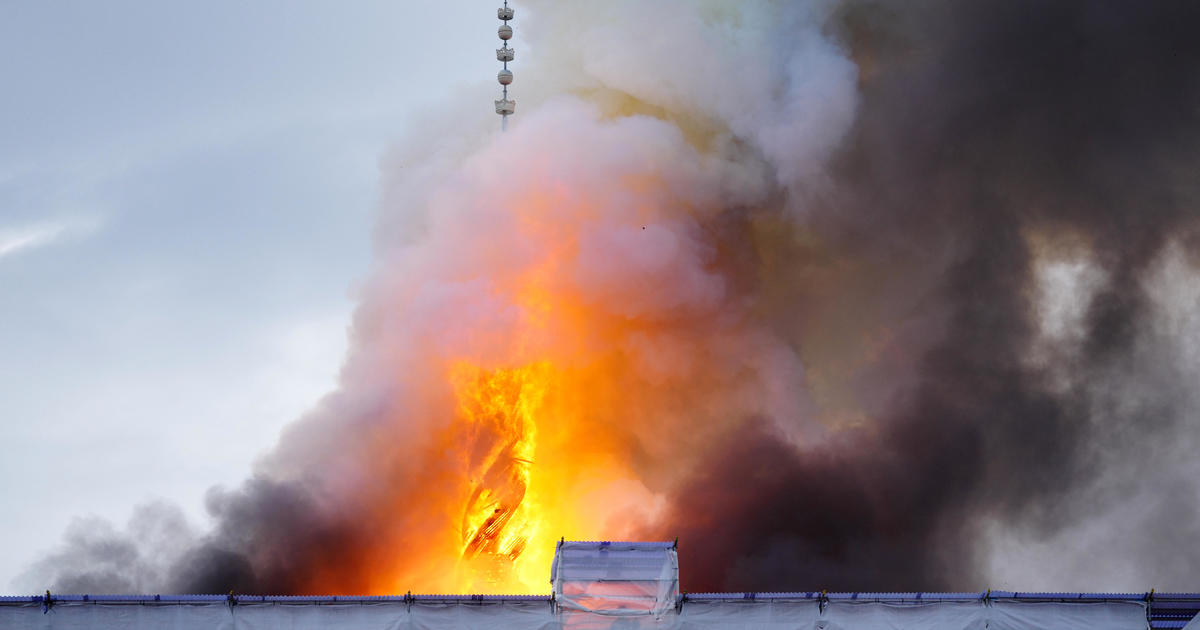Residents near fire raging at Texas chemical plant raise health concerns
A chemical plant near Houston has been burning since Sunday morning. Officials said Tuesday they don't know how long it will take to burn itself out. Firefighters are trying to keep it from spreading — as thick black smoke billows into the air, hour after hour.
Andrew Wheeler, the head of the Environmental Protection Agency (EPA), said his agency is closely monitoring the air quality. The chemical plant is closed and evacuated.
The chemical fire's flames are wider and the tower of smoke is thicker — darkening the Houston's sky as far as 40 miles away.
The plant owner, Intercontinental Terminals Company (ITC), said while the fire looks ominous, no one is in danger. ITC spokesman David Wascome said they continue to monitor air quality.
"We're working with Sea-Tac, we're also working with the EPA," Wascome said. "They actually flew a few planes through the plume the last few days and they're still within safe levels."
Jorge Guerra, who lives three miles away, doesn't believe it.
"I've seen ash fall out -- black pieces of ash," Guerra said. "I've seen it on my cars, I've seen it on the front porch on the sidewalk. Does that scare you? It does, it does. What scares me more is what we don't see."
ITC stores chemicals used in gasoline mixes and paint thinners. They can cause difficulty breathing, coughing, headaches and irritation to the eyes, nose and throat.
The company has a history of environmental violations, having paid more than $200,000 in fines over the past decade. Experts say even if the air quality is good now, it might not be tomorrow.
"If we get a thunderstorm or something like that, which mixes the atmosphere, then all that junk is going to come to the surface," said Robert Talbot, a professor of atmospheric chemistry at the University of Houston.
The fire is still spreading on Tuesday night. Eight of those massive chemical tanks are in flames right now, seven more are in the path of the fire. The company continues to say toxins are not in the plume of smoke that can be seen for miles.




